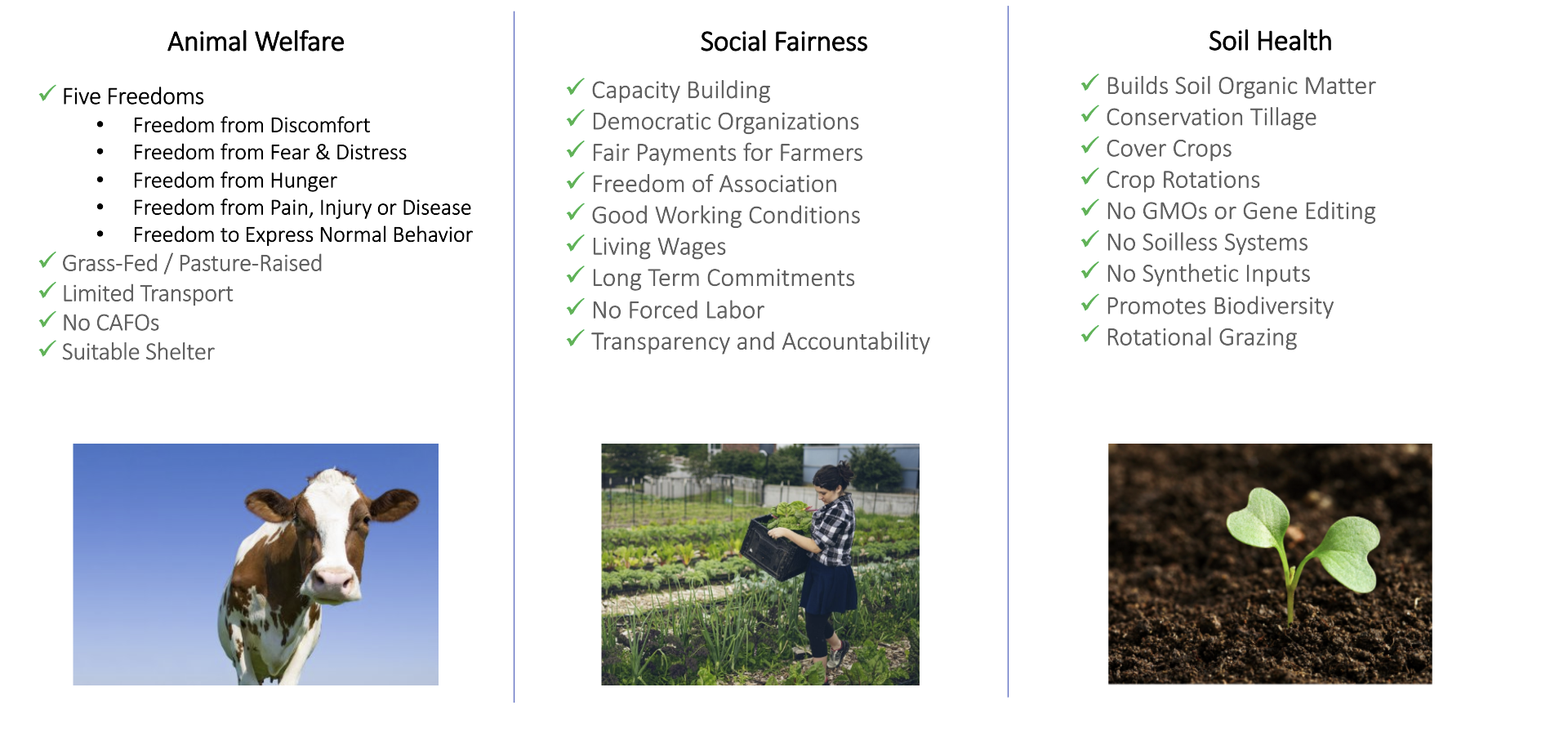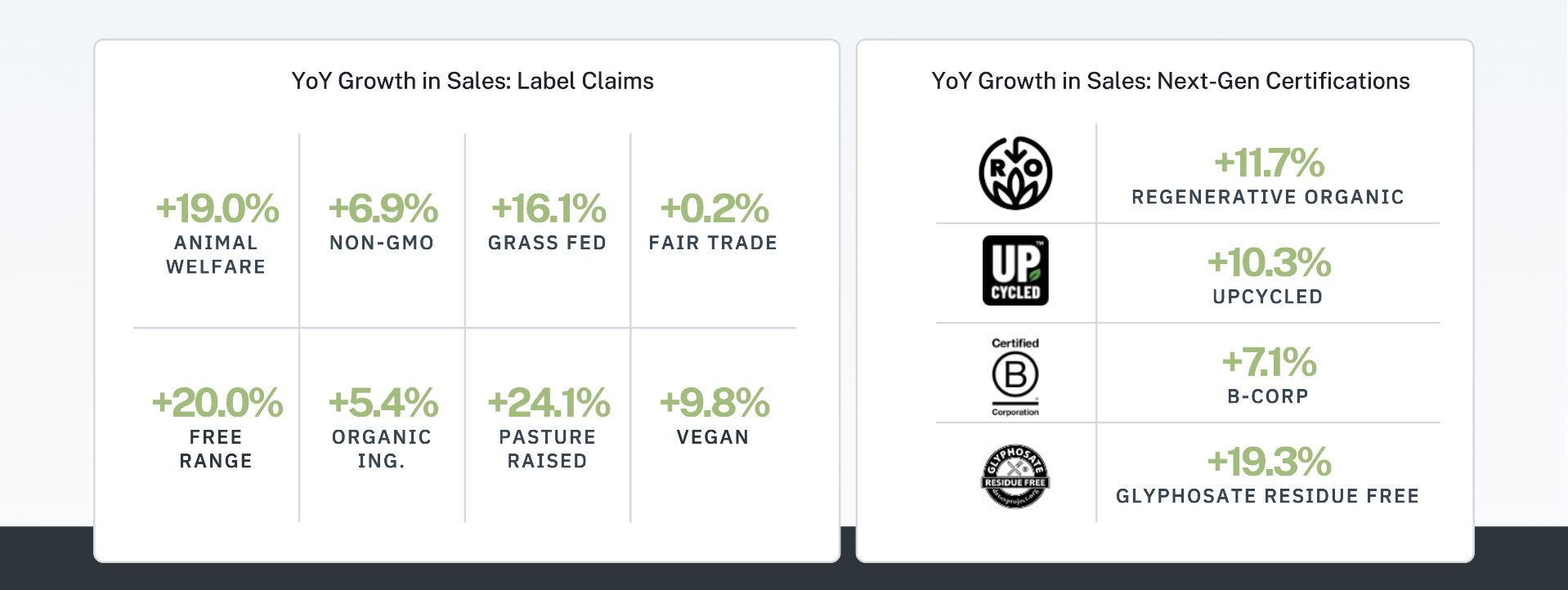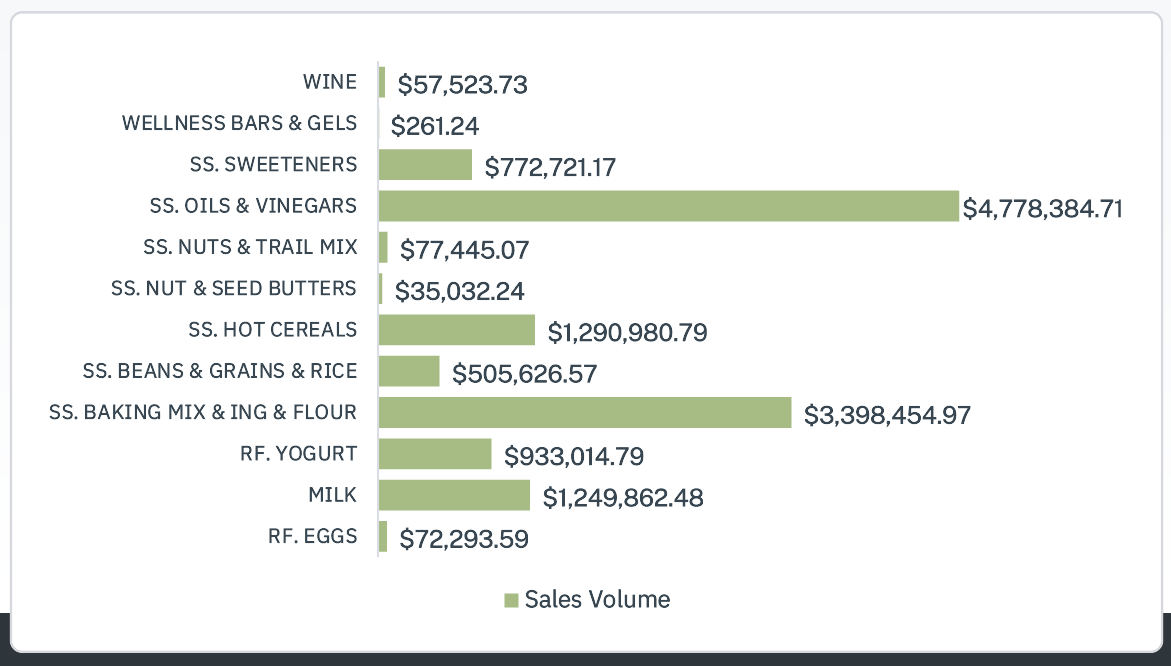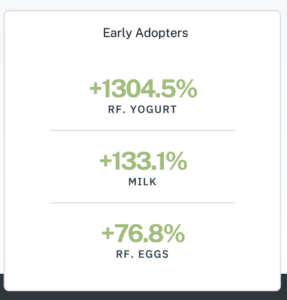Key Takeaways
- Regenerative organic agriculture is an exciting new cross-industry initiative to go beyond sustainability goals and improve productivity vs. just maintaining balance.
- It’s an extremely rigorous certification that builds on the path that other certifications have begun.
- Shoppers are increasingly looking to label claims and certifications to guide their purchase decisions, not just for plant-based products, but for meat and dairy as well.
In this edition of our Attribute Spotlight, we’re excited to introduce a great new attribute with massive disruption potential—Regenerative Organic Certified. This certification represents the next frontier of sustainable production that is continuing to gain traction throughout the industry.
What is the Regenerative Organic Certification?
Regenerative Organic Certified was established in 2017 by farmers, business leaders, and experts in soil health, animal welfare, and social fairness collectively referred to as the Regenerative Organic Alliance.
Regenerative Organic Certification focuses on 3 pillars: Soil Health, Social Fairness, and Animal Welfare, to promote better treatment of the environment, workers, and animals.

The three pillars of regenerative organic agriculture.
Modern farming practices deplete crucial nutrients in the soil that are necessary for consistent, sustainable growth. Regenerative Organic Certification fosters an environment that enables future generations to continue to use these resources at the same—or better—capacity.
By extending this focus on caring for the planet to the workers they employ and the animals they raise, the Regenerative Organic Certification cuts across social boundaries and issues to represent a union of businesses dedicated to leaving the world better than they found it.
Why It Matters
Regenerative Organic Agriculture furthers the original vision of sustainable agriculture. Where sustainable agriculture focuses on maintaining balance or the status quo, regenerative agriculture pushes the boundary to create practices that improve yields now and in the future.
The Regenerative Organic Alliance’s high standards and lofty goals can be viewed as a form of industry self-regulation, encouraging businesses to adopt practices that shift focus away from short-term profits to a richer, more vibrant future across the supply chain—from the farmers raising crops and animals to the shoppers who purchase the finished products.
Leveraging existing high-bar certifications like USDA Organic, Fair Trade, and Humane—Regenerative Organic Certification represents companies that excel at treating the planet well across all functions in their efforts to improve living conditions for future generations.
Sustainability Continues to Buoy Food & Beverage Categories
Emphasizing sustainable and equitable treatment of the planet, animals, and workers translates into revenue. We’ve seen significant growth year-over-year in common sustainability qualities highly recognizable to shoppers. We’re also seeing this growth in a set of emerging sustainability certifications that have high disruption potential.

YoY Growth in sales for common label claims and next-gen certifications. Source: SPINS Natural Channel, MULO (powered by IRI), 52 Weeks Ending 1/29/23.
These innovative, next-gen certifications focus on sustainable concepts that build off the groundwork and shopper capital that organic, fair trade and non-GMO have established in the marketplace. In other words, these new certifications are creating additional avenues for shoppers to purchase products that exemplify their sustainable ideals.
Market Adoption of Regenerative Organic Certification
As we mentioned earlier, this certification is very early in its lifecycle, but we’re already seeing its marketplace presence being established, particularly in the Oils & Vinegar and Baking Mixes & Flour categories.

Regenerative Organic Certified sales by category, 52 weeks ending 1/29/23. Source: SPINS Natural Channel, MULO (powered by IRI), 52 Weeks Ending 1/29/23. Powered by SPINS Product Intelligence: Certified Regenerative Organic
A quick analysis shows that we are seeing regenerative organic emerge in more commodity-like categories—beans, grain, and rice, as well as oils and vinegars—where opportunities for meaningful sustainability differentiation can be difficult. This represents a great opportunity for both brands and retailers to consider as they look to cater to the sustainability shopper in the future.
Another stat worth noting here is in the meat and dairy categories – yogurt, milk, and eggs. In efforts to combat the negative perceptions of animal agriculture, we’ve seen dairy brands position themselves as sustainable solutions on the same level or even more sustainable than plant-based options. Dairy and livestock producers are quickly becoming early adopters to bring regenerative organic’s highly compelling sustainability message to shoppers and retailers.
RELATED: What is Product Intelligence?

YoY growth in Certified Regenerative Organic for select categories, 52 weeks ending 1/29/23. Source: SPINS Natural Channel, MULO (powered by IRI), 52 Weeks Ending 1/29/23. Powered by SPINS Product Intelligence: Certified Regenerative Organic
On the flip side, regenerative is still a major opportunity for plant-based brands as they look to reinforce their sustainable messaging.
It’s important to note that Regenerative Organic Certification and other new certifications touched on in this post are still in the early stages of their lifecycles and can be heavily impacted by the success or failure of a single brand. This creates a volatility that we don’t see in more established attributes with high total sales volume. As such, when examining the growth of innovative attributes, it’s important to pay close attention to metrics like proliferation across categories, brands, and stores—in addition to sales volume—to better understand marketplace adoption. That said, certifications are becoming more and more vital to shoppers, especially in the sustainability space.
With a wide range of sustainable label claims appearing on products, shoppers are likely to respond well to the trust and transparency that certifications and certification logos bring—much like the USDA organic seal and non-GMO project brought us years ago.





